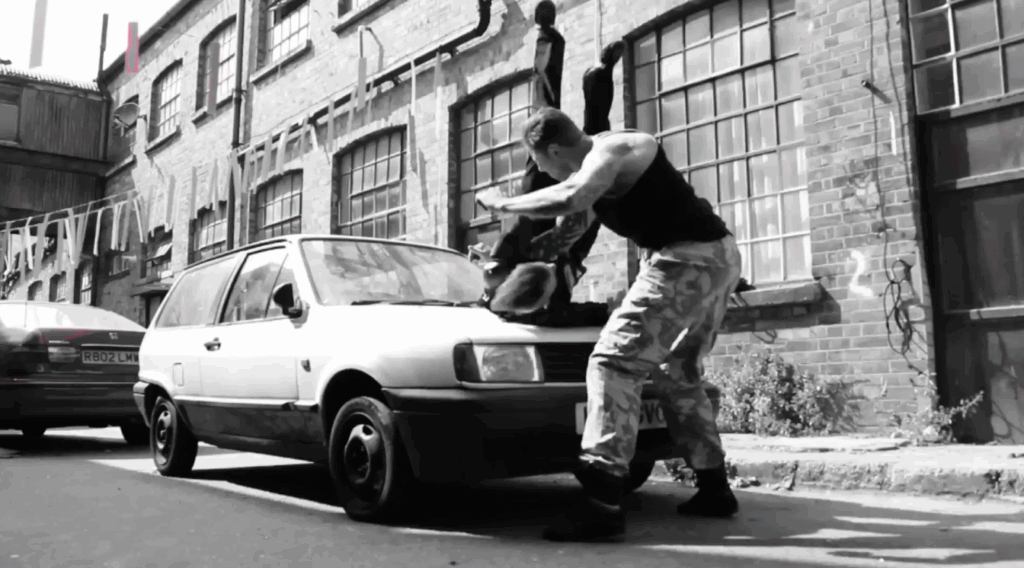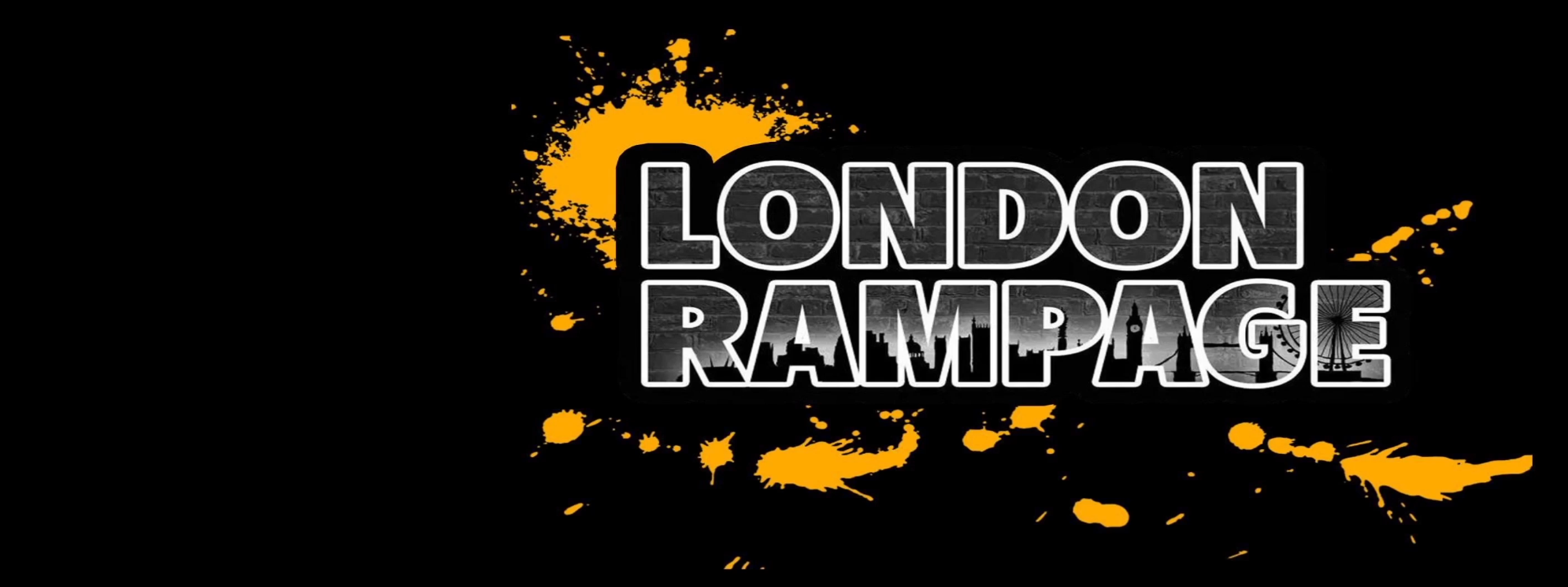Latest News
Fitness News Headlines
Indie filmmaking is often born from passion, a burning desire to tell a specific story against the odds of budget constraints and industry gatekeeping. Greg Burridge, known more for his presence in the wrestling ring and stunt work than behind the camera, steps into the challenging role of writer, director, and star for his 2018 feature debut, London Rampage. Set against the backdrop of the sprawling, often unforgiving cityscape of London, the film attempts to weave a gritty narrative of crime, brotherhood, and consequence. However, despite its raw ambitions and the notable physical presence of Martyn Ford, London Rampage ultimately buckles under the weight of its limitations, delivering a crime thriller that feels both underdeveloped and disappointingly familiar.
The Genesis of a Rampage: From Wrestling Ring to Director’s Chair
Understanding London Rampage requires acknowledging its origins. Greg Burridge, whose career prior primarily involved professional wrestling and roles often leveraging his physicality, co-wrote the script with Simon Cluett and took the directorial reins. This move represents a significant leap, an attempt to transition from performer to auteur. Such transitions are fraught with difficulty, demanding a different skill set – narrative construction, visual storytelling, managing performances, and orchestrating the complex machinery of a film set, even a low-budget one.
The film emerges squarely from the independent scene, lacking the polish and resources of studio productions. This context is crucial. Indie films often trade slick production values for raw energy, unique perspectives, or character-driven depth. The hope is that ingenuity and vision will compensate for financial limitations. London Rampage positions itself as a tough, street-level British crime film, a genre with a rich history, from Guy Ritchie’s stylized gangster romps to more grounded, bleaker fare. Burridge aims for the latter, attempting to depict the harsh realities faced by those on the fringes of society.

Plot Breakdown: A Tale of Two Brothers, A City in Chaos
The narrative core of London Rampage revolves around two brothers, Damien and Ben, portrayed by the imposing Martyn Ford and director Greg Burridge himself, respectively. Living disparate lives but united by a shared, troubled past, they are drawn back together for one ostensibly simple, high-stakes robbery. As is often the case in such tales, the plan goes disastrously wrong. An unforeseen act of violence during the heist serves as the catalyst, shattering their already fragile bond and sending them down divergent, dangerous paths.
Damien, the more physically intimidating and seemingly hardened of the two, spirals deeper into the violent criminal underworld. His journey becomes a brutal tour through London’s less glamorous corners, marked by escalating conflict and ruthless decisions. Ford, known for his towering physique, certainly looks the part of an unstoppable force, and the film leans heavily on this visual menace.
Ben, meanwhile, appears to grapple more overtly with the consequences of their actions. His path seems geared towards escape or perhaps a desperate attempt at redemption, navigating the fallout while potentially trying to protect loved ones or simply survive the escalating chaos unleashed by the botched job. Burridge playing this role creates an interesting dynamic, placing the director at the heart of the film’s moral and emotional conflict.
The “rampage” of the title suggests a wave of violence spreading across the city, stemming from this initial incident. The plot attempts to follow the ripple effect, showing how one bad decision can ignite a firestorm, consuming not only the perpetrators but potentially innocent bystanders and rival criminal elements drawn into the fray. The structure aims for a thriller’s momentum, driven by chases, confrontations, and the looming threat of retribution.
Characters & Performances: Finding the Anchor in a Storm
A film like London Rampage, reliant on grit and intensity, lives or dies by its performances, especially those of its leads. Martyn Ford as Damien is undoubtedly the film’s most marketable asset. His sheer physical presence is undeniable, lending an immediate credibility to the character’s capacity for violence. The challenge, however, lies in conveying the character’s inner life beyond the imposing exterior. While Ford embodies the menace effectively, the script offers limited opportunities for nuanced character development, often reducing Damien to a force of nature rather than a complex individual. His performance works best in moments of intimidation and action, but the dramatic heavy lifting proves more challenging.
Greg Burridge, pulling double duty as director and lead actor (Ben), faces a different challenge. Directing oneself is notoriously difficult, requiring an objective eye that can be hard to maintain when also immersed in a performance. Burridge brings a grounded, weary energy to Ben, contrasting with Ford’s explosive presence. He capably portrays the character’s internal conflict and desperation. However, the chemistry between the two brothers, crucial for the story’s emotional core, feels underdeveloped. Their shared past is alluded to more than explored, leaving their motivations and the reasons for their fractured bond somewhat vague.
The supporting cast features some surprisingly recognizable names, including Tara Reid, Jane March, and Michael Madsen. Their inclusion feels like an attempt to add marquee value, a common strategy in independent productions. However, their roles often amount to little more than extended cameos. While actors like Madsen can bring instant gravitas even in small doses, their fleeting appearances don’t significantly elevate the narrative or compensate for the film’s core weaknesses. Their presence feels somewhat disconnected from the main thrust of the plot, potentially serving more as favours or easily secured day-player roles than integral parts of the story. The overall quality of acting across the supporting roles is uneven, a typical hallmark of low-budget indie productions where casting choices can be constrained.

Directing and Visuals: Capturing London’s Underbelly on a Budget
As a directorial debut, London Rampage shows flashes of ambition in its attempt to craft a visceral, street-level thriller. Burridge demonstrates a clear affinity for action sequences, leveraging his background to stage confrontations with a degree of raw energy. The film aims for a gritty aesthetic, using London locations to create a sense of place, focusing on less picturesque alleyways and council estates rather than tourist landmarks.
However, the direction often struggles with pacing and tone. Scenes meant to build tension can feel drawn out, while moments requiring emotional weight are sometimes rushed. The visual language of the film is functional but rarely inventive. The cinematography captures the action adequately but lacks a distinctive style that could elevate the material. It often succumbs to the limitations of its budget, with lighting and camera work that occasionally feel flat or uninspired, failing to fully exploit the atmospheric potential of its London setting.
The editing is competent in constructing the action sequences but less successful in weaving together the parallel journeys of the two brothers and maintaining narrative momentum. The score attempts to underscore the tension and grittiness but occasionally becomes intrusive or generic. Ultimately, while Burridge shows potential in handling action, the overall craft of direction – encompassing pacing, visual storytelling, and eliciting consistent performances – reveals his relative inexperience. The film feels less like a cohesive vision and more like a collection of gritty scenes struggling to coalesce into a compelling whole.
Critical Reception & Audience Buzz (or Lack Thereof)
The true measure of an indie film often lies in its reception, both critically and with audiences, especially when significant box office returns are unlikely. London Rampage faced a challenging landscape upon its release.
Factual data paints a stark picture:
- IMDb Rating: The film holds a low score of 3.8/10 on IMDb, based on user ratings. This indicates a generally negative reception from viewers who sought it out.
- Rotten Tomatoes: London Rampage currently lacks a Tomatometer score from professional critics on Rotten Tomatoes, suggesting it received minimal attention from established reviewers. There is also no listed Audience Score, further highlighting its limited reach and impact.
- Critical Reviews: Scouring for professional reviews yields very little. The film largely flew under the radar of mainstream film criticism, typical for micro-budget independent features without significant festival buzz or distribution push. The few available comments often echo audience sentiments, pointing towards script issues, uneven acting, and visible budget constraints, while sometimes acknowledging Ford’s presence or the film’s gritty aspirations.
- Box Office and Popularity: As expected for a film of this scale and reception, there is no significant box office data available. London Rampage likely had a very limited release, potentially going straight to Video-on-Demand (VOD) or DVD/Blu-ray markets. Its popularity remains low, confined to a niche audience perhaps drawn in by the genre, the London setting, or the presence of Martyn Ford or Greg Burridge. It certainly didn’t make waves or find a cult following.
The lack of critical engagement and poor audience scores suggest the film failed to connect meaningfully. While indie productions aren’t expected to compete commercially with blockbusters, they often hope to find favour through critical acclaim or dedicated genre audiences. London Rampage appears to have achieved neither.
Final Thoughts: Ambition Outweighs Execution
London Rampage stands as a testament to Greg Burridge’s ambition to break into filmmaking, tackling a gritty crime story in his directorial debut while also taking a lead role. The film leverages the intimidating presence of Martyn Ford and attempts to paint a dark picture of brotherhood and violence on the streets of London. There’s a raw, unpolished energy here that hints at the kind of film Burridge perhaps envisioned.
However, aspiration alone cannot carry a film. London Rampage is ultimately hampered by significant flaws. The screenplay feels underdeveloped, struggling with character depth, believable motivations, and narrative coherence. While Ford looks the part, the performances are uneven across the board, including the distracting cameos from bigger names. Burridge’s direction shows promise in action scenes but lacks the consistent control over pacing, tone, and visual storytelling needed to elevate the material. The low budget is apparent not just in the production values but in the apparent limitations it placed on script development and casting depth.
Compared to the best of the British crime genre, London Rampage falls considerably short. It lacks the stylistic flair of early Guy Ritchie, the sharp writing of films like Layer Cake, or the harrowing intensity of tougher dramas like Tyrannosaur. It exists in a crowded space of low-budget action thrillers, failing to distinguish itself through originality or exceptional execution.
Is it worth watching? Perhaps for hardcore fans of Martyn Ford curious to see him in a leading role, or for those interested in tracking Greg Burridge’s transition into filmmaking. But for general audiences seeking a compelling crime thriller, London Rampage offers little reward. It’s a gritty attempt that unfortunately stumbles, a passion project whose reach ultimately exceeds its grasp. A missed opportunity to deliver a truly impactful slice of London noir.
London Rampage (2018): Key Information Summary
| Feature | Details |
|---|---|
| Title | London Rampage |
| Year | 2018 |
| Director | Greg Burridge |
| Writers | Greg Burridge, Simon Cluett |
| Genre | Action, Crime, Thriller |
| Starring | Martyn Ford (Damien), Greg Burridge (Ben) |
| Notable Support | Tara Reid, Jane March, Michael Madsen |
| IMDb Rating | 3.8/10 |
| Reception | Minimal critical reviews; Generally negative user feedback |
| Release | Independent / Limited Release / VOD |
| Key Point | Greg Burridge’s directorial debut; Low-budget production |
